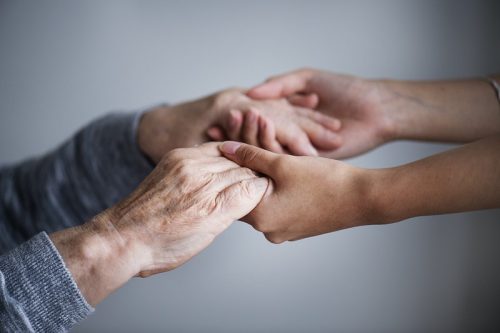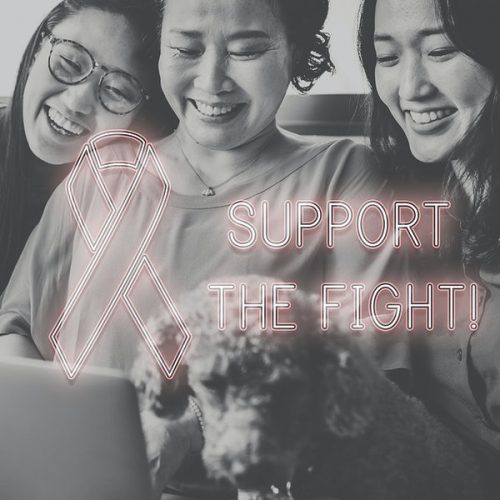
Source: rawpixel.com
Just as anybody with cancer is aware, a diagnosis of cancer also impacts family members and significant others. At times, the complicated emotions and lifestyle modifications caused by the illness, along with its treatment, can be overwhelming for loved ones as they are also for you. Knowing the possible changes in how you relate to particular members of the family and close friends may be able to help you take the necessary steps to build stable and equally compassionate relationships during these challenging times.
Couples and Partners
Cancer has a tremendous impact on marriages and long-term relationships. When the diagnosis is made, both individuals may feel sad, angry, anxious, hopeless, or depressed. The side effects of cancer differ from couple to couple. For some, confronting the trials brought about by cancer further intensifies their bond. But for others, the anxiety and stress of the illness create new challenges that could magnify existing problems.
Some of the changes that frequently present in relationships include:
Cancer modifies roles. Someone who has been used to being in charged or functioned as the main caregiver might have difficulty acknowledging a more reliant role. Or someone who has not played those roles may have trouble taking charge or providing sufficient care. A spouse might try to take control by being an expert in a particular aspect of cancer. He might attempt to make changes to the treatment schedules or communicate with the medical team. If you have both agreed to this, it might even help you deal with the disease. However, it is vital that you listen to each other’s needs and wants and try to remain open-minded.
- Physical needs. These needs that might arise as a result of cancer may alter throughout the course of the illness. It is crucial that spouses talk about what they need. Reaching out and helping each other with the usual activities of daily living, like dressing up or brushing your teeth might become difficult eventually. But your spouse may not be aware that you need help, so it is important that you talk freely and clearly communicate your needs. This helps prevent frustration and bitterness that could lead to misinterpretation of your partner’s behavior.

Source: rawpixel.com
- Emotional needs. Each individual’s emotional needs may vary or change all the time and partners might need more reassurance that the love is still there. Couples must be sensitive to the altering emotional requirements that come with the disease. They might also want to think about discussing their concerns with a mental health counselor, together or on their own. It might benefit the family to engage in music therapy for cancer patients to helps stabilize their loved one’s mental health.
Partners who care for their significant other with cancer may probably find it hard to fully express all their feelings because they are afraid of hurting their partner. On the other hand, the loved one with cancer must also be able to talk about how she feels to someone who can manage the intensity of her emotions without being dazed or burdened.
Cancer often alters a couple’s future plans. Travel or retirement plans may change and this causes feelings of depression, bitterness, or anger perhaps. Working together in managing your priorities helps to gradually create fresh goals, like finishing the cancer treatment or having a baby for new couples. Things that used to be a priority prior to the cancer diagnosis might become less important. It would be wise to put the other plans on hold instead of instantly changing them, as it would inspire you to look forward to the future.
Family Members and Friends
The impact of cancer on your bonds with family and friends differ greatly, depending on how close you are to them. Some families have various communication and handling techniques. Think about how family members will respond in times of crises and they have managed other problems in your family life. This will definitely help you create your own strategies for breaking the news to them and seeking their support.
Below are some recommendations that would help you to make proper adjustments to relationship changes with family members and friends.

Source: rawpixel.com
Anticipate your bonds to change in one way or another. A lot of people have very little experience with life-threatening diseases like cancer so they may have no idea how to react or what to say. Some may be scared after learning about your cancer. Others how may have loved ones who died of cancer may recall the hurtful memories. Because of this, some of your family members and friends might not be capable of providing the support and care that you expect from them.
Indeed, this is painful. But just remember that these responses may be the result of their past encounters and losses and certainly not how they feel about you. Some of your close friends may keep some distance from you, but others will amaze you with their physical and emotional support throughout the course of your illness. So keep the spirit going and encourage yourself to find the good in your loved ones. Let them help and love you. Finally, always remember to be grateful for family and friends. They are treasures for life. If you, or you know someone who is struggling with cancer, you may refer them on seeing services from professionals such as a therapist or counselor.
